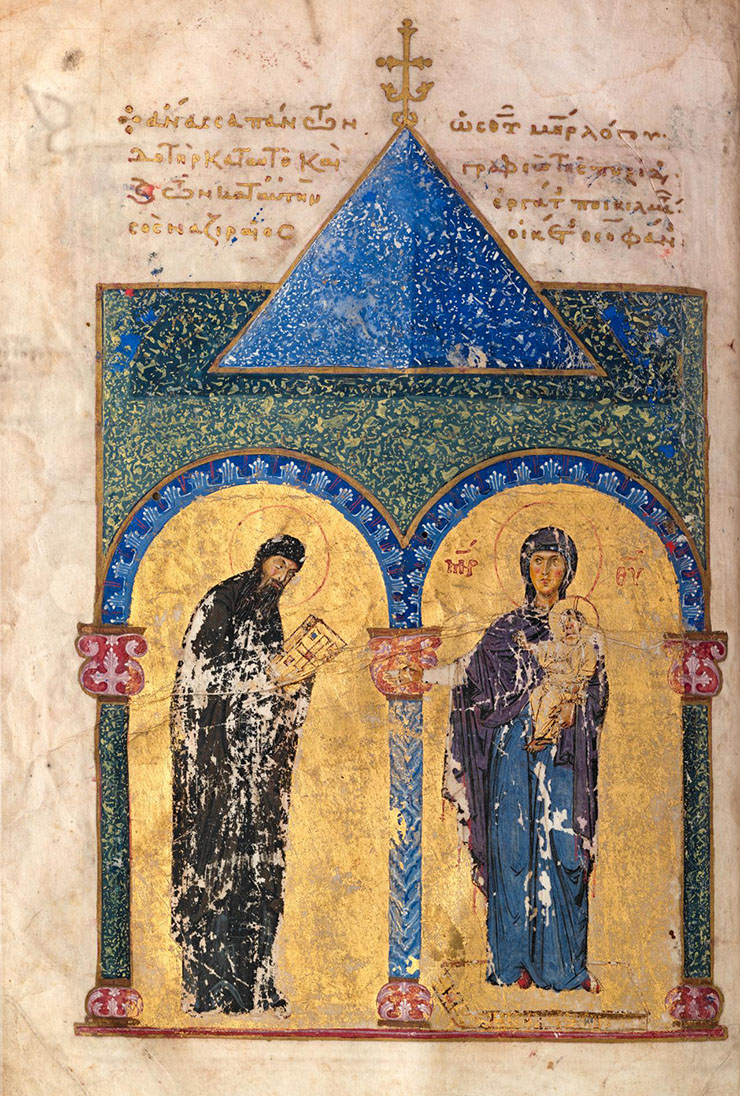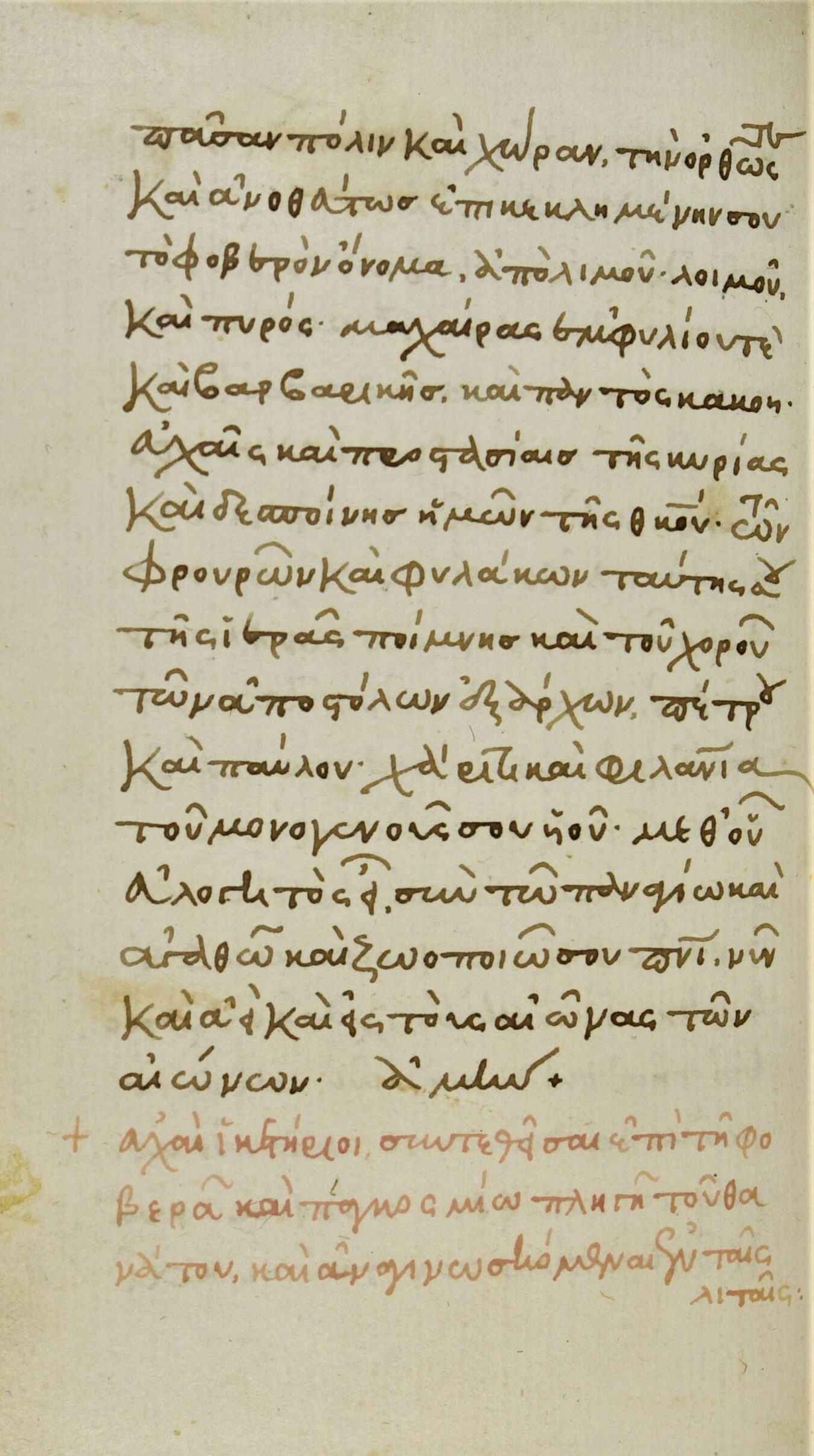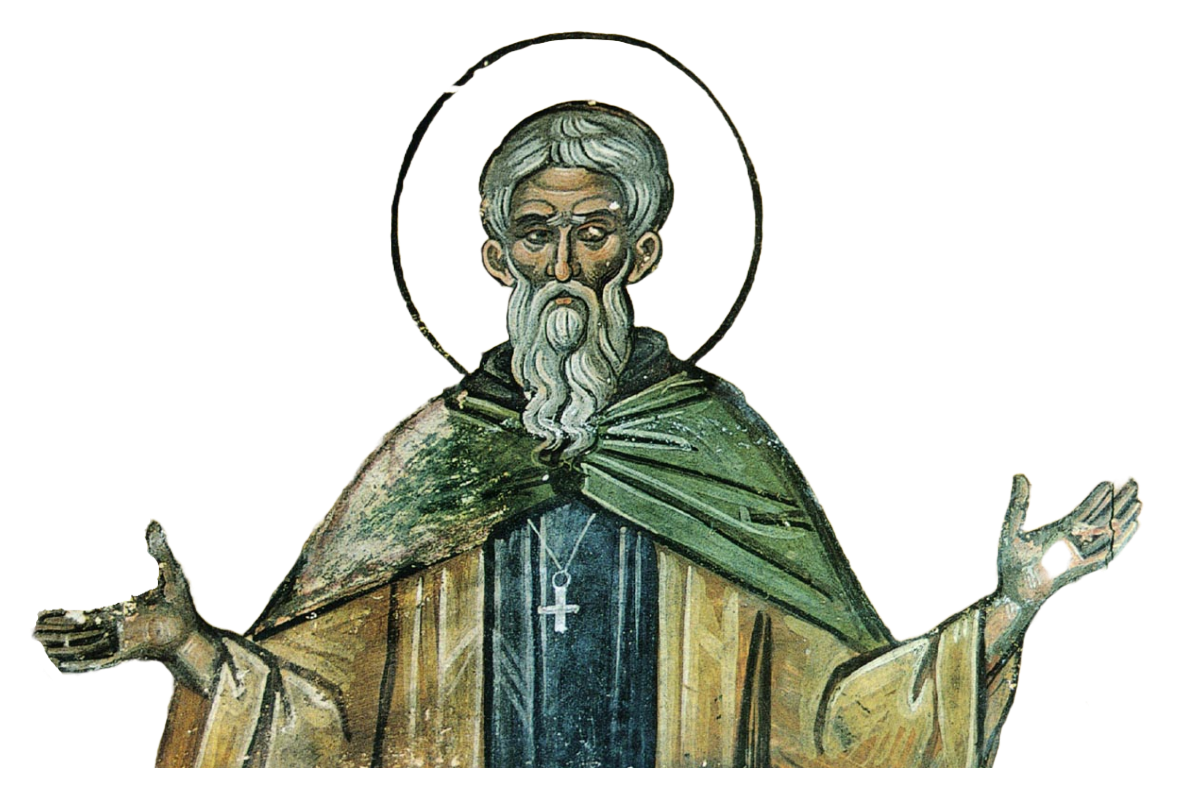Byzantine Prayers
Official webpage of the PRECES research project
PRECES

The Gospel Book of Theophanes, ca. 1125-1150
(© National Gallery of Victoria, Melbourne)
Prayers lay at the heart of religious practice and belief in Byzantium. Serving immediate and/or intended social, political, theological, and literary objectives, prayers are a valuable, though less explored, source of insight into the history of Byzantine spirituality, as well as the social and political history of Byzantium and the daily life of its citizens. In spite, and perhaps in response to, its socio-political and economic crisis, late Byzantium fostered a particularly notable proliferation of new prayers, composed especially by churchmen.
ABOUT THE PROJECT
PRECES contributes to the study of the late Byzantine practice, contexts, and significance of prayer by undertaking a census, historical contextualisation, and systematic analysis of Philotheos Kokkinos’ corpus of (unedited) prayers composed for various occasions (euchai diaphoroi), such as for times of drought, plague, civil war, against enemies, at the beginning of the indiction, and for the emperors with the occassion of his ordination as metropolitan of Thracian Herakleia.

Serdcensis, Dujčev gr. 89, f. 64v
(© Centre for Slavo-Byzantine Studies “Prof. Ivan Dujčev”)
“For beginners, prayer is like a joyous fire kindled in the heart; for the perfect it is like a vigorous sweet-scented light. A sign of purity, a token of holiness, the revelation of God, the work of monks, the life of hesychasts, the source of stillness, and expression of the angelic state.”

St Gregory Sinaites, Chapters in acrostic 113
Should you have any questions regarding this research project, please reach out to the project director via the Contact form.
